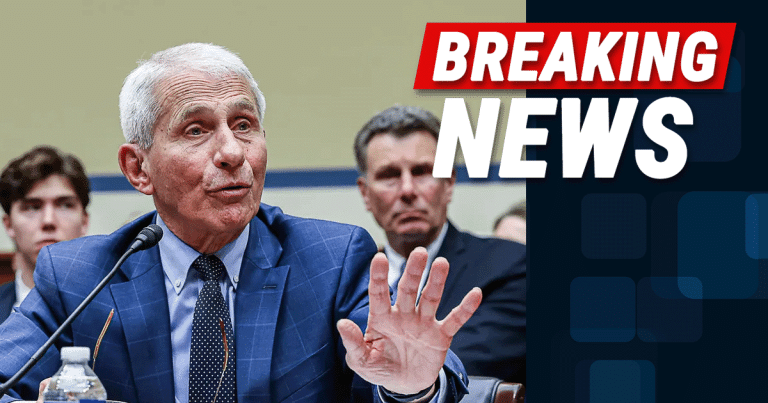
The Department of Health and Human Services (HHS) has undergone a sweeping review of administrative contracts. This has resulted in the elimination of dozens of taxpayer-funded projects that exemplify Washington’s addiction to wasteful spending. When did government bureaucrats decide they needed monuments to themselves? That’s the question many Americans are asking.
The latest round of cuts, orchestrated by the Department of Government Efficiency (DOGE), specifically targeted non-essential administrative expenses while preserving core healthcare services. It’s about time someone started asking the hard questions about where our tax dollars are really going.
In a bold move that signals a broader shift toward fiscal responsibility, HHS officials announced the cancellation of 62 contracts worth $182 million over just 48 hours. These cuts represent part of a larger initiative to streamline federal operations and eliminate unnecessary spending across government agencies.
Among the canceled contracts was a particularly striking example of government excess: a $168,000 taxpayer-funded museum exhibit dedicated to former National Institute of Allergy and Infectious Diseases director Dr. Anthony Fauci.
Let that sink in – $168,000 for a museum display while Americans struggle with inflation. You truly can’t make this stuff up.
Cutting The Fat
The Fauci exhibit, which was scheduled for completion by July 2025 at the National Museum of Health and Medicine in Silver Spring, Maryland, became a symbol of what fiscal conservatives have long criticized as Washington’s tendency toward self-congratulatory spending. For taxpayers who remember Fauci’s shifting positions during COVID, this exhibit’s cancellation feels like delayed justice.
Fox News reported: “In the past 48 hours, HHS canceled 62 contract[s] worth $182 million. These contracts were entirely for administrative expenses – none touched any healthcare programs. This included terminating a $168,000 contract for an Anthony Fauci exhibit at the NIH Museum.”
The cancellation comes just weeks after President Donald Trump’s decision to end Fauci’s taxpayer-funded security detail. This move emphasized the administration’s commitment to limiting post-retirement perks for former government officials. How many more examples of wasteful spending are still hiding in plain sight?
The timing of the exhibit’s cancellation has drawn particular attention given recent revelations about the federal government’s COVID-era spending. The museum display would have commemorated Fauci’s career spanning from 1984 to 2022, including his controversial tenure during the pandemic.
The project’s termination follows former President Joe Biden’s unusual step of issuing a preemptive pardon to Fauci before leaving office in January 2025. A pardon for what exactly? That’s the question many Americans are asking.
Broader Reform
DOGE, under the leadership of Elon Musk, has expanded its cost-cutting initiatives across multiple federal agencies. Finally, someone is asking the questions that conservative Americans have been raising for years.
The National Institutes of Health (NIH) announced simultaneous reforms to its grant process, implementing changes expected to save taxpayers approximately $4 billion annually. These aren’t just numbers on a page – this is real money being returned to the American people.
“Last year, $9B of the $35B that the NIH granted for research was used for administrative overhead,” the agency revealed, announcing new restrictions that will cap indirect costs at 15%. This is a dramatic reduction from the previous rates that sometimes exceeded 60%.
These reforms represent what fiscal conservatives have long advocated: careful scrutiny of administrative spending while protecting essential services. Indeed, the cancellation of the Fauci exhibit serves as a tangible example of this new approach to government spending.
The systematic review of federal contracts has revealed numerous instances of what DOGE officials describe as “administrative excess.” While some of these initiatives face legal challenges, supporters argue they represent a necessary step toward fiscal responsibility and government accountability.
As federal agencies continue to face increased scrutiny over administrative spending, the latest round of cuts demonstrates a clear shift in priorities. With billions in savings already identified, taxpayers may finally see what fiscal conservatives have long promised: a government that spends less on self-celebration and more on essential services.
The message from Washington appears clear: the era of unlimited administrative spending and bureaucratic monuments is coming to an end. For fiscal conservatives, it’s a change that’s long overdue.
Key Takeaways:
- HHS canceled $182 million in administrative contracts, including a planned $168,000 Fauci museum exhibit.
- The Department of Government Efficiency’s reforms are projected to save taxpayers $4 billion annually.
- Biden’s preemptive pardon of Fauci raises questions about accountability in government spending.
- New policies cap administrative overhead at 15%, down from previous rates exceeding 60%.
Sources: Fox News, The New York Post


